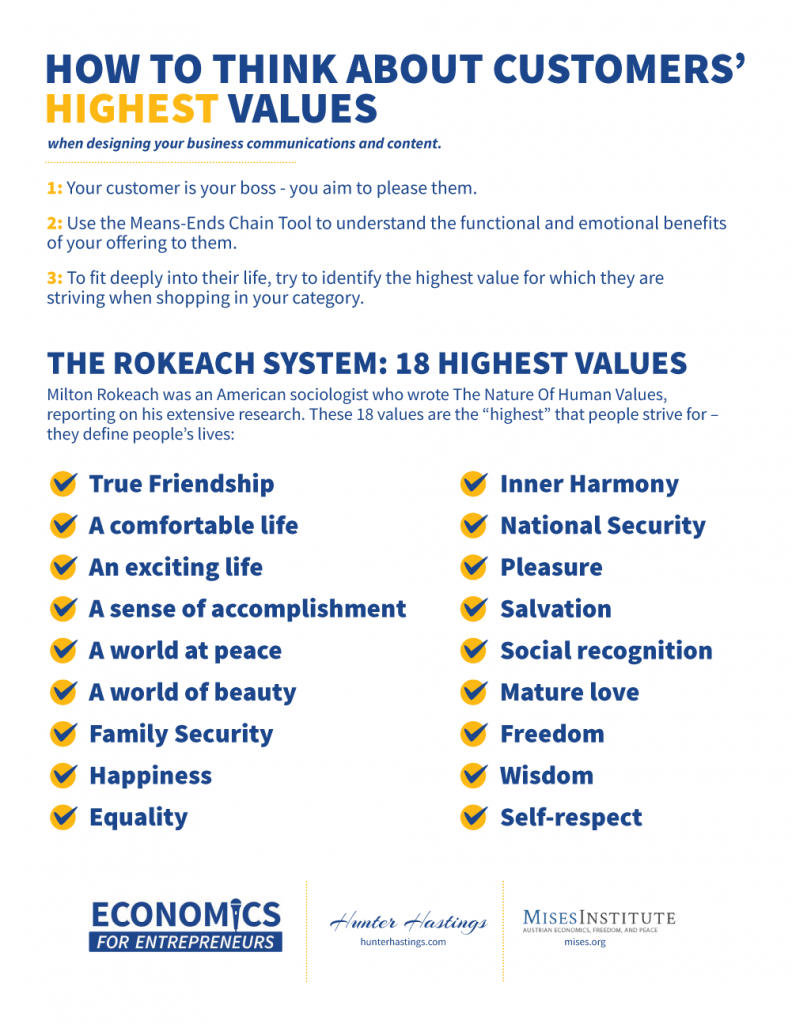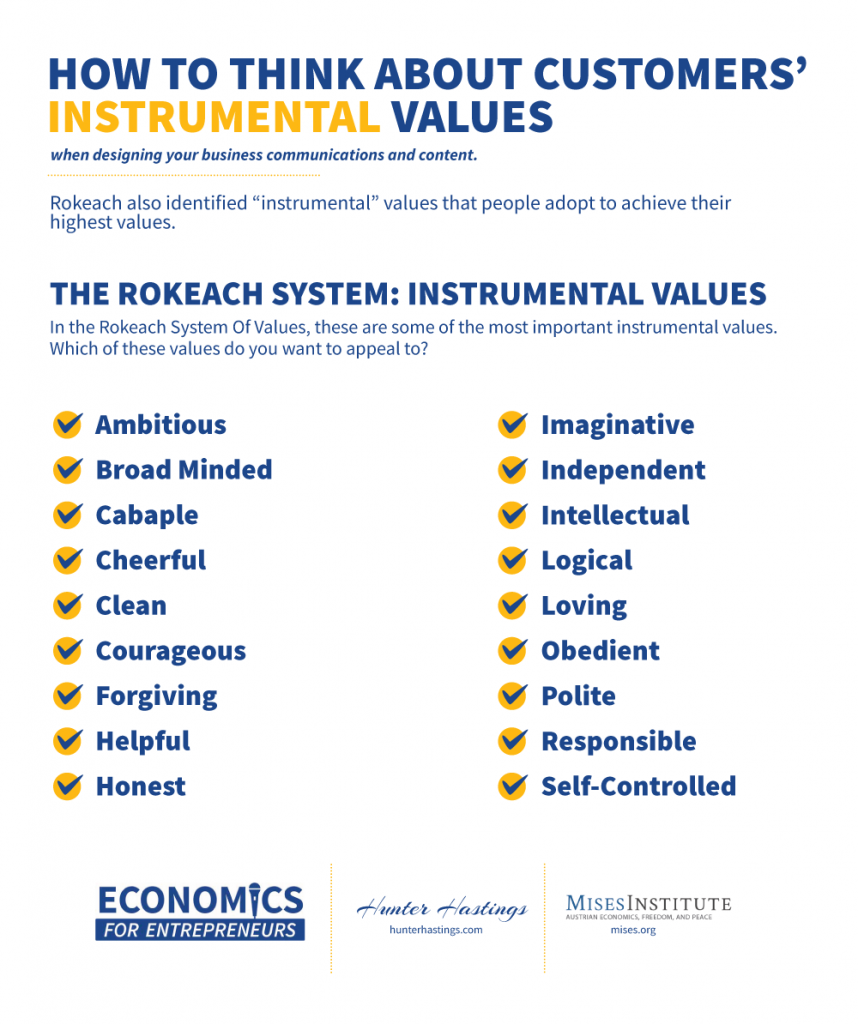Rokeach’s Values
The Use Of Terminal And Instrumental Values In Understanding Consumer Motivations.
Economists know that consumers make purchase decisions in the context of their subjectively held values. Each individual holds different values. They all have a hierarchy of values – some are more important to them than others – and this internal hierarchy determines how they make choices. They are always pursuing their “highest” or “ultimate” values, and selecting the ends that they think will help them attain those values.
Click Here for a PDF Version of Rokeach’s Values Sheet
Sociologists can name those values. Based on research among specific populations, they can identify and record patterns that apply. This is helpful to the entrepreneur because convincing a consumer that a product or service can contribute to the consumer’s value attainment is a step towards making a sale. Some people call this process “marketing”, but it is really just applied economics.
Milton Rokeach was a sociologist who researched these matters. He developed a Value Survey that he used to collect large amounts of respondent data, and he published his findings in a number of books, including The Nature Of Human Values (Macmillan, 1973).
He defined “terminal values” as the personal end-states toward which individuals strive. One example is “inner harmony” – the achievement of a balance between internal desires and external pressures. In his view, there could also be social end states desired by individuals, such as Global Brotherhood.
Rokeach also identified “instrumental values”, defined as the values we “ought” to have to achieve our ends (morals – such as honesty) or the personal competencies we need to have (confidence, reason).
A value is a preference, as well as a “conception of the preferable”. One value does not define any individual’s behavior, and Rokeach called the combination of values a “value system” – multiple, clustered values. Rokeach thought the total number of terminal values was 18, and the universe of instrumental values could be 60 or 70 in number.
This means that it is possible for the entrepreneur to identify the values held and pursued by consumers in a specific category of business. The entrepreneur can see these values as motivational to the consumer. The return on identifying, studying and understanding these motivational values comes from developing innovations, services variations and communications which are better aligned with consumers’ values and therefore more attractive to buyers. The most successful entrepreneurs are able to imagine the values system that exists in the mind of the consumer.




Leave a Reply
Want to join the discussion?Feel free to contribute!